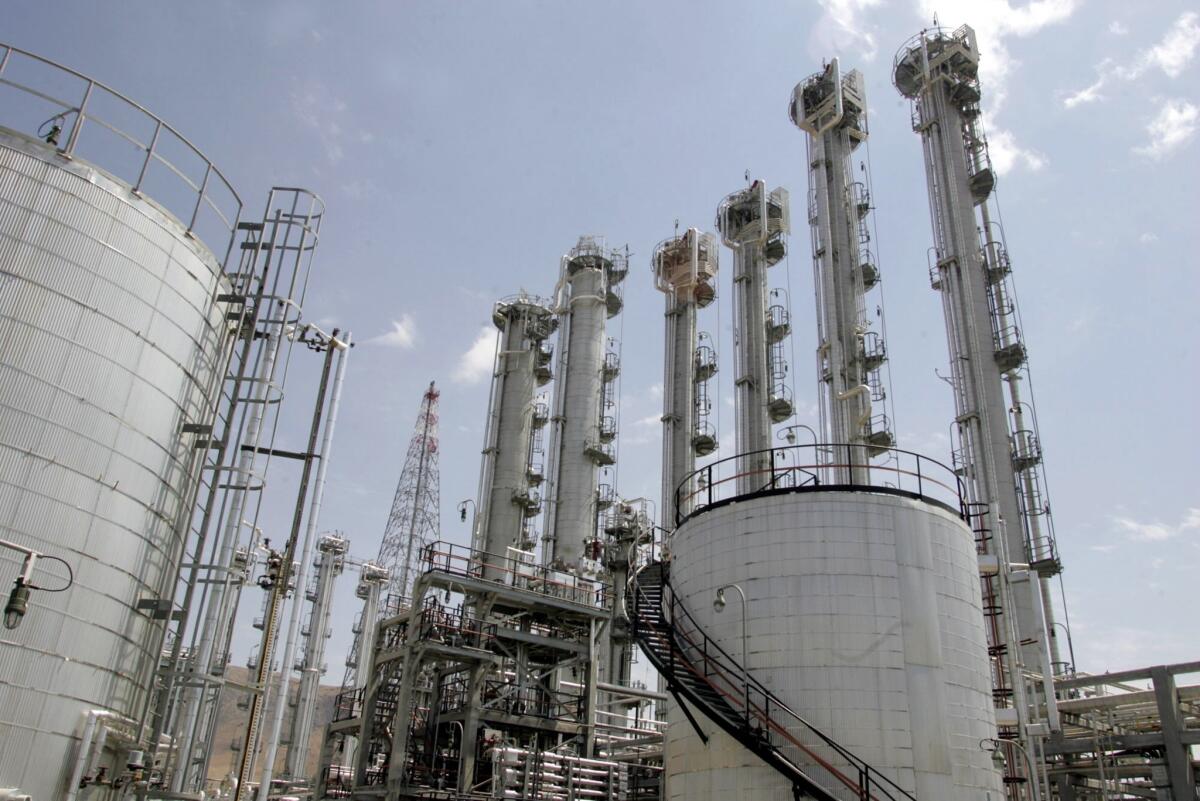In talks with Iran, France stood on principle

France has long established itself as the guardian of the Nuclear Nonproliferation Treaty and its disarmament mandates. A republic capable of much cynicism, France has nonetheless defended the integrity of the treaty and protected its much battered norms. This was the case last week in Geneva when France resisted an agreement with Iran that it deemed insufficiently robust.
For now, Washington has conceded to Paris, provoking a chorus of criticism from those who seek an accord at any price. Contrary to the critics’ claims, the United States’ greatest diplomatic successes have come about when it proved sensitive to the concerns of its allies and not just the imperatives of its adversaries.
Among America’s most important historic achievements was its steady hand in unifying postwar Germany. The German question was at the heart of Europe’s struggles, from the nation’s division in the aftermath of World War II to its unification in 1990. When the Berlin Wall came down, President George H.W Bush faced the daunting challenge of creating a Europe whole and free after 45 years of harsh division. Not only did the Soviet Union need to be reconciled to German unification, our closest allies — Britain and France — harbored understandable misgivings.
Bush and Secretary of State James Baker created a mechanism and momentum that helped overcome the objections of French President Francois Mitterrand, British Prime Minister Margaret Thatcher and Russian President Mikhail Gorbachev. Through a process of almost constant consultation and real-time adjustment, Washington reconciled its allies and its adversary’s conflicting positions.
Several years later, the question that bedeviled Europe was the role of NATO and the extent of its frontiers. NATO enlargement was a subject that was neuralgic for a newly post-Soviet Russia, but also sensitive for our closest NATO allies. The Clinton administration established a process of virtual but almost continuous negotiations with the Britain, France, Germany and NATO’s North Atlantic Council. A mechanism for Russia’s grudging acceptance of an enlarged NATO was worked out with substantial contributions from U.S allies. Washington succeeded not by disregarding its allies’ qualms but by creatively integrating them in a negotiated solution.
When these principles are set aside, America suffers. The George W. Bush administration’s handling of the six-party talks on North Korea’s nuclear program in 2007-08 stand out as one such episode. Japanese concerns were routinely dismissed or slighted. The result was increased tension in the U.S.-Japanese relationship, which played a role in the failure to reach a meaningful agreement with North Korea. For any accord to have had a chance, it had to be anchored on a regional consensus.
The challenge of diplomacy with Iran is that it intersects with the interests of a range of actors. Israel looms large, as Prime Minister Benjamin Netanyahu has long decried Iran’s nuclear ambitions as an existential threat. He is now joined by a power less obsessed with the Iranian threat and more concerned with a treaty that has stemmed the tide of proliferation of nuclear arms for more than four decades.
The French objections seemed to center on Iran’s nearly completed plutonium plant in Arak and its growing enrichment capacity, which offers it an easy path to the bomb. For Paris, a provisional agreement is without much value unless it freezes not just some but all of Iran’s multiple paths to nuclear arms. Interim agreements come and go but sanctions relief is irreversible.
France’s embrace of principle over expediency has been censured as unwise if not obstructionist. The Obama administration is advised to compel France’s acquiescence. The historical record indicates that America’s negotiating outcomes benefit from taking into account its allies’ objections. Washington should seek real consultation with Paris, not just pro-forma efforts to “inform” with an expectation that France will fall into line with what might be politically acceptable — such as a desire for a “deliverable” outcome.
As the negotiations with Iran ebb and flow, it is important to appreciate that the cause of the current crisis is not French Foreign Minister Laurent Fabius or Netanyahu but Iranian supreme leader Ayatollah Ali Khamenei. It is not France that stands in violation of numerous United Nations Security Council resolutions but Iran. It is not the French foreign ministry that mocks these resolutions as illegitimate and politically contrived but Iran’s. And while Iran continues to defy and defile the Nuclear Nonproliferation Treaty, France has an honorable history of seeking to shield it.
Eric Edelman is a fellow at the Center for Strategic and Budgetary Assessment and served as undersecretary of Defense for policy. Ray Takeyh is a senior fellow at the Council on Foreign Relations.
More to Read
A cure for the common opinion
Get thought-provoking perspectives with our weekly newsletter.
You may occasionally receive promotional content from the Los Angeles Times.










